Lecture 5: Egyptian Art
1/18
There's no tags or description
Looks like no tags are added yet.
Name | Mastery | Learn | Test | Matching | Spaced | Call with Kai |
|---|
No analytics yet
Send a link to your students to track their progress
19 Terms
Mastaba
“Bench”
Made from mudbrick
Ka/Ka statue
Life-force that continued to exist after death
False door
Symbolic, carved representation of a doorway found in tombs and mortuary chapels that served as a magical portal for the deceased's ka (life force or spirit) to pass between the world of the living and the afterlife to receive offerings
Serdab
Small room which held statues of the deceased
Often completely closed off
No one was really intended to see it
Horus
Falcon or a man with a falcon's head, symbolizing kingship and protection
Nemes headdress
Symbol of kingship
Uraeus serpent
Worn on the forehead
Symbol of ancient Egypt, depicted as a rearing cobra —> pharaoh's divine authority and sovereignty
Shendyt kilt
Symbol of unification
Idealism
Perfect
Rock-cut tomb
Not royal tombs (ex: tomb of amenemhat); mountainside provides structural support, carved out of rock
Hypostyle hall
Roof supported by rows of closely packed columns, with the term originating from Ancient Greek for "under pillars"
Osiris
God of the underworld, resurrection, and fertility
Crook and Flail
Crook - shepherd's staff —> kingship and the ruler's duty as a shepherd to his people
Flail - fertility of the land and the power to discipline and maintain order
Realism
Depicting everyday life
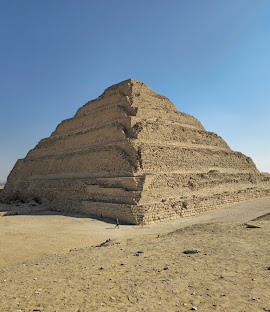
Stepped Pyramid of Djoser
First time there’s a mortuary structure in stone and a mortuary building combined with ritual buildings. It had processional spaces and there’s no known architect. It had a dual function of advertisement and providing the king a home in the afterlife. There were real functional buildings and false buildings (meant for King’s usage in the afterlife) and it was completely solid inside.
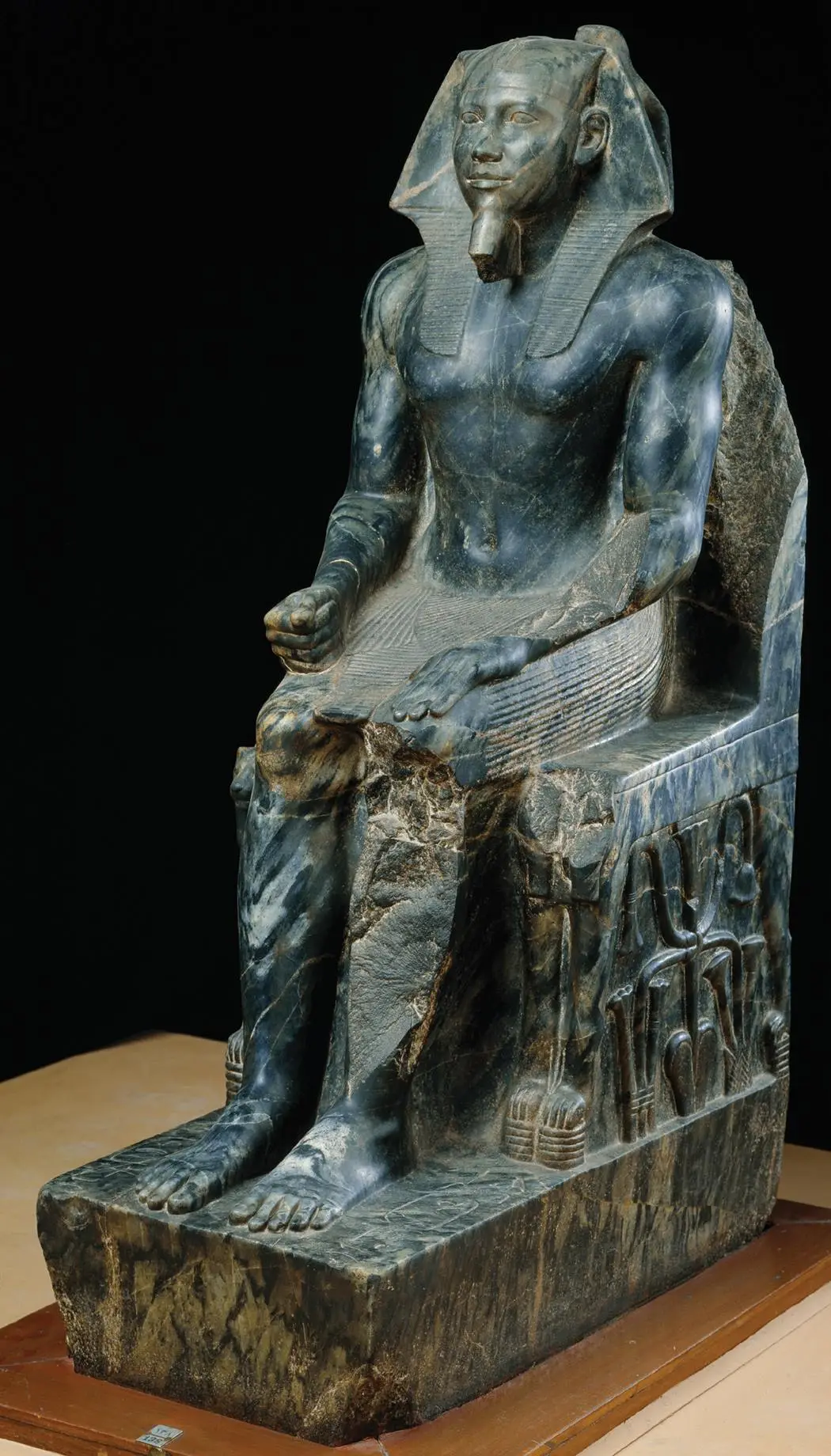
Statue of Kahfre
This is from the time of the Old Kingdom. Behind Kahfre is Horus, the falcon god and protector of the king. The statue is made from gneiss. His idealized body represents eternal kingship and divine authority. Kahfre is wearing a shendylit kilt (symbol of unification).
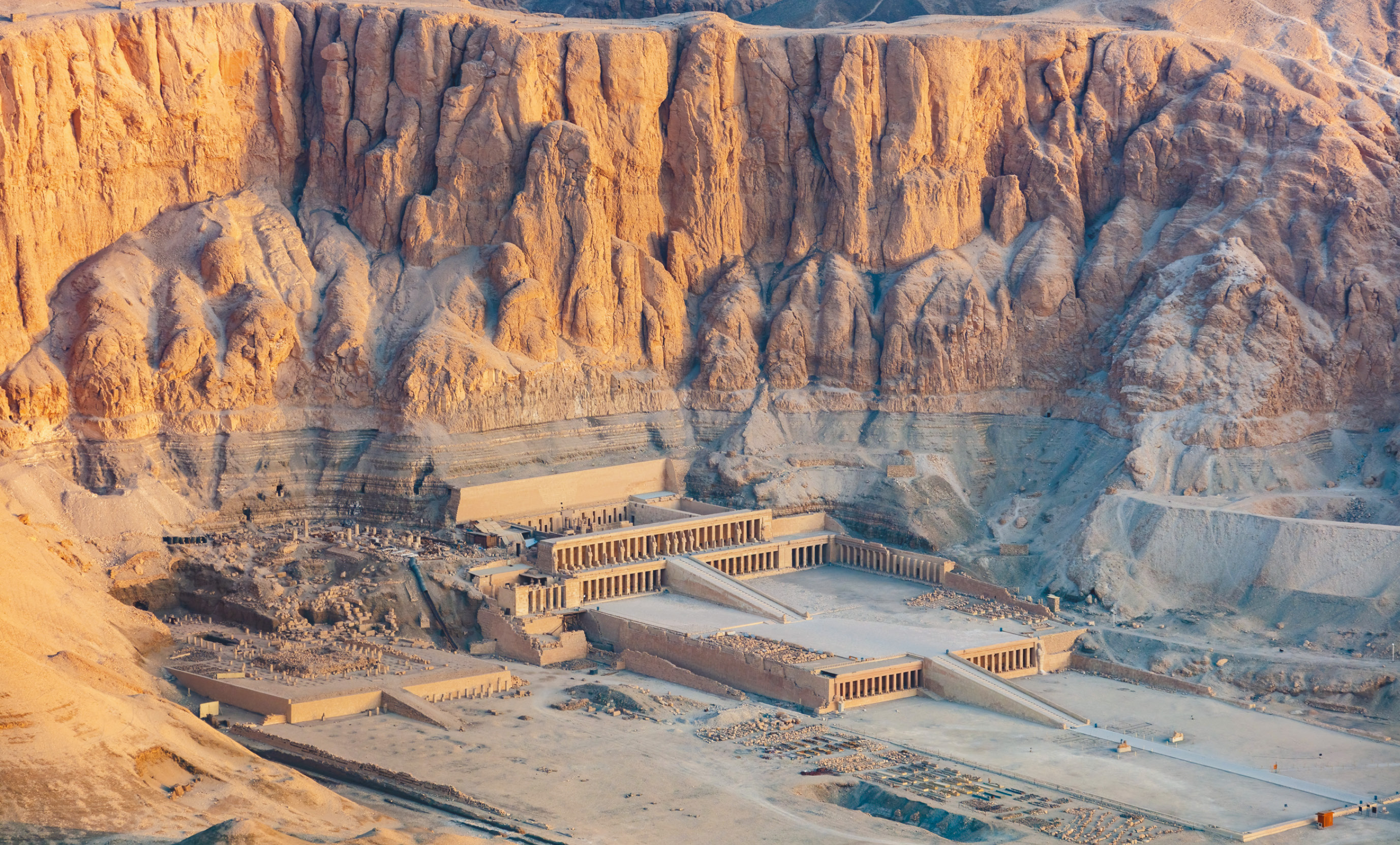
Funerary Complex of Nebhepetre Mentuhotep
This was a causeway that leads from the Nile with an upper terrace of stacked porticoes. Ritual offerings were made in the courtyard. Behind the courtyard was a hypostyle hall with the purpose of visuals. Inside was a statue of the king which is a connection to divine authority. This is during the time of the Middle Kingdom (which was reunited by Mentuhotep).
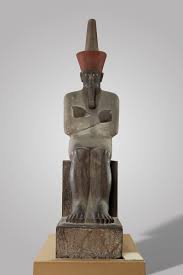
Statue of Mentuhotep II
He is wearing a composite crown and a jubilee robe. If his arms weren’t crossed, he would hold a crook and flail. His skin is painted black. Pharaohs who were associated with Osiris were typically represented with black/green skin.
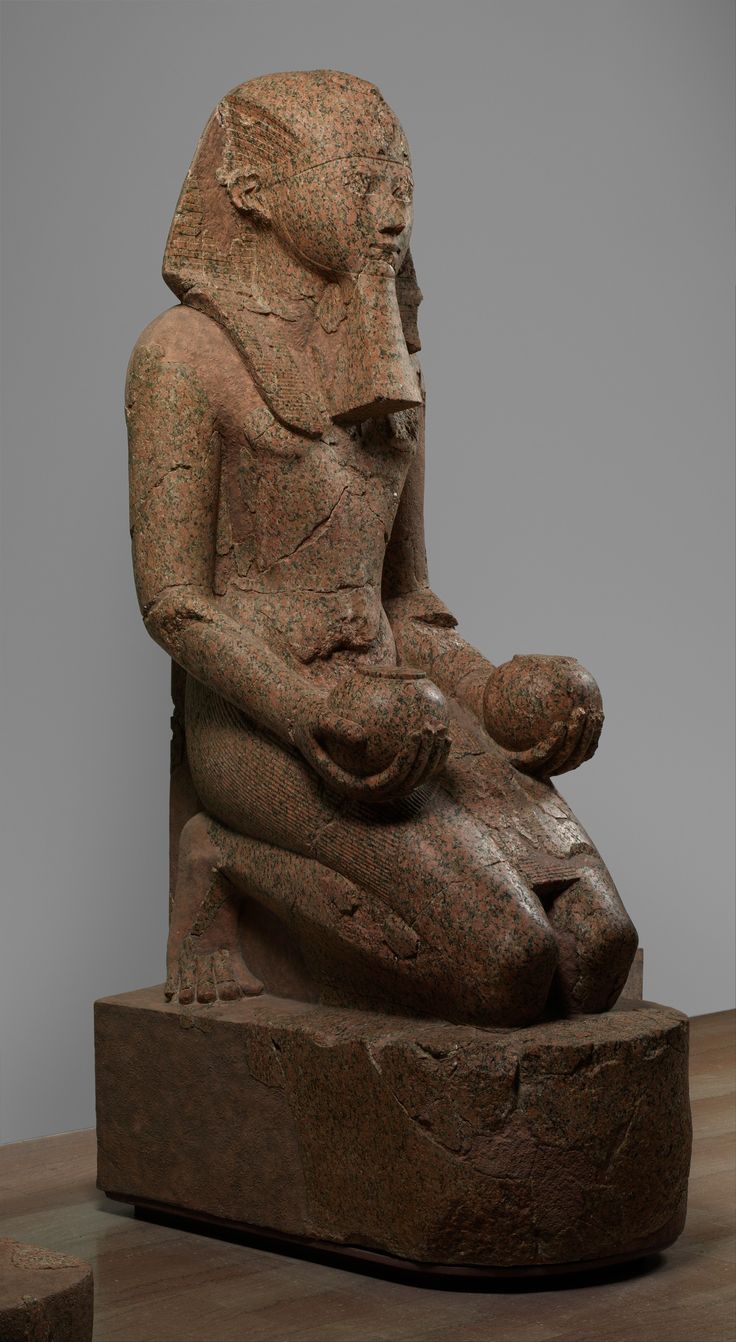
Large Kneeling Statue of Hatshepsut
Hatshepsut is depicted as a male although she was a woman. In her hands, she holds votive offering cups. The piece shows tradition and is idealistic as it connects to the past and how she wanted to legitimize herself. This is during the time of the New Kingdom and emphasizes divine kingship. The stiffness of the posing represents wanting to seem like that for eternity.